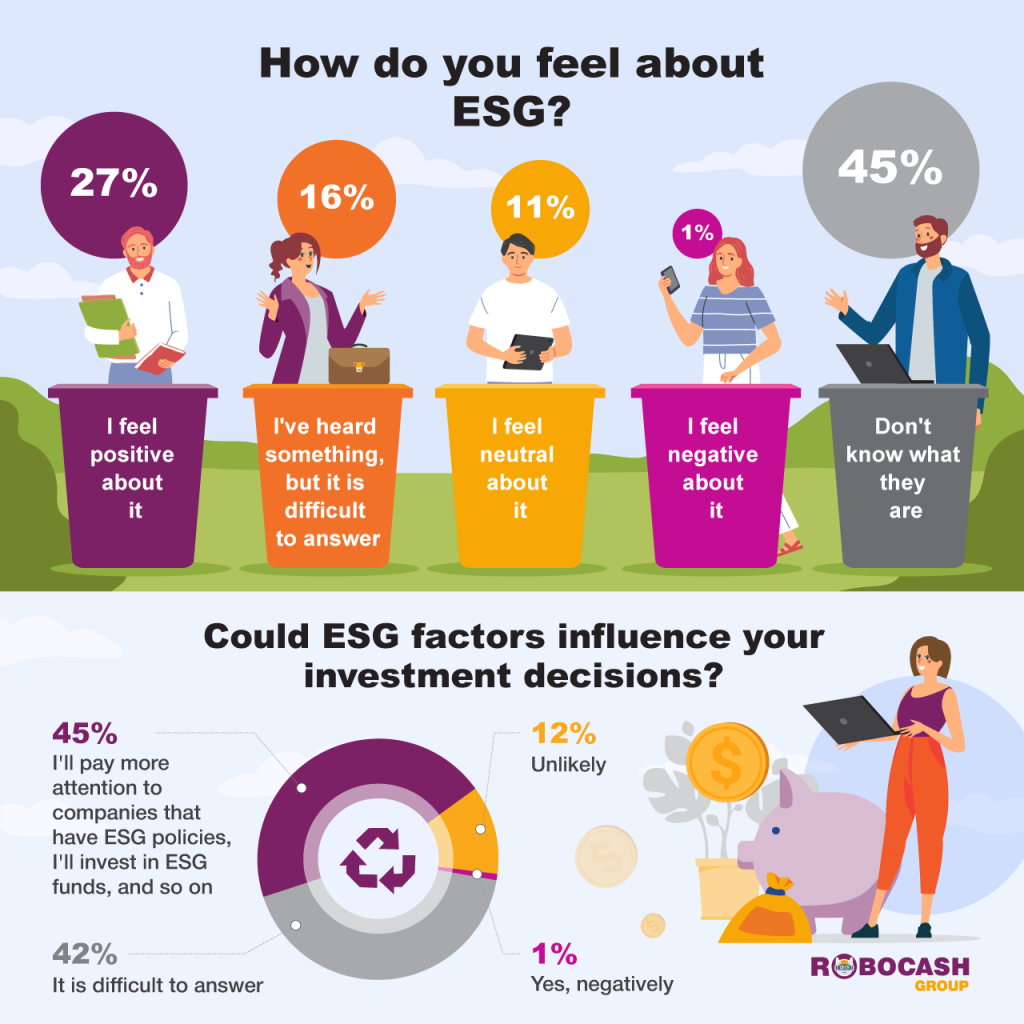The survey conducted by Robocash Group shows that 45% of the respondents from India, Malaysia, Pakistan, the Philippines and Vietnam who are willing to invest are interested in ESG. However, ESG factors have yet a long way to go to reach massive buy-in from the retail investor community.
Until recently, the popularization of the ESG agenda was inconsistent, with the major centers being Western Europe, America and Australia. Since 2020, the ESG-related activity in Asia has grown significantly. This assessment is backed by the Robocash Group survey, conducted among Internet users in Asia interested in investment. 45% noted that ESG could become a significant factor affecting their investment decisions in the near future. 34% agreed that ESG is on the rise in Asia, with promising prospects for further development. Clearly, ESG has yet a long way to go to reach mass acceptance among the retail investment community.

The share of ESG investments in Asia (excluding Japan) in 2012-2016 was just 0.8%, versus 52.6% in Europe. However, approximately 79% of APAC investors have increased their ESG investments after Covid-19 (MSCI 2021 Global Institutional Investor survey). In particular, the total sum of ESG assets in the region reached 25.4 Bn USD by the end of 2020 (Morningstar Global Sustainable Fund Flows report). During the summer of 2021, the issuance of ESG-related bonds reached the record-setting 69.1 Bn USD, surpassing the US in this regard (53.1 M USD).
Robocash Group analysts say countries in Asia are working to improve their regulatory frameworks, with creating a united panasian regulatory ESG environment being the main agenda. Digitalisation-backed improvements in accessibility of financial services – one of the most important contributing factors to the spread of ESG in South and Southeast Asia. The population of the emerging South and Southeast Asian economies can significantly accelerate the digitalisation process on a massive scale boosting ESG development in Asia.
